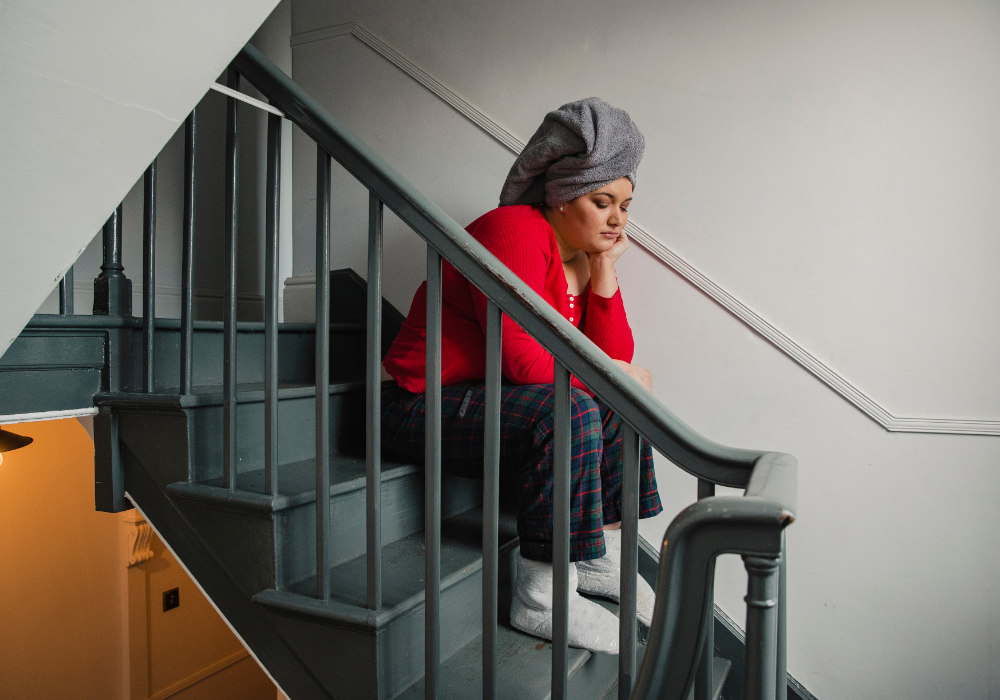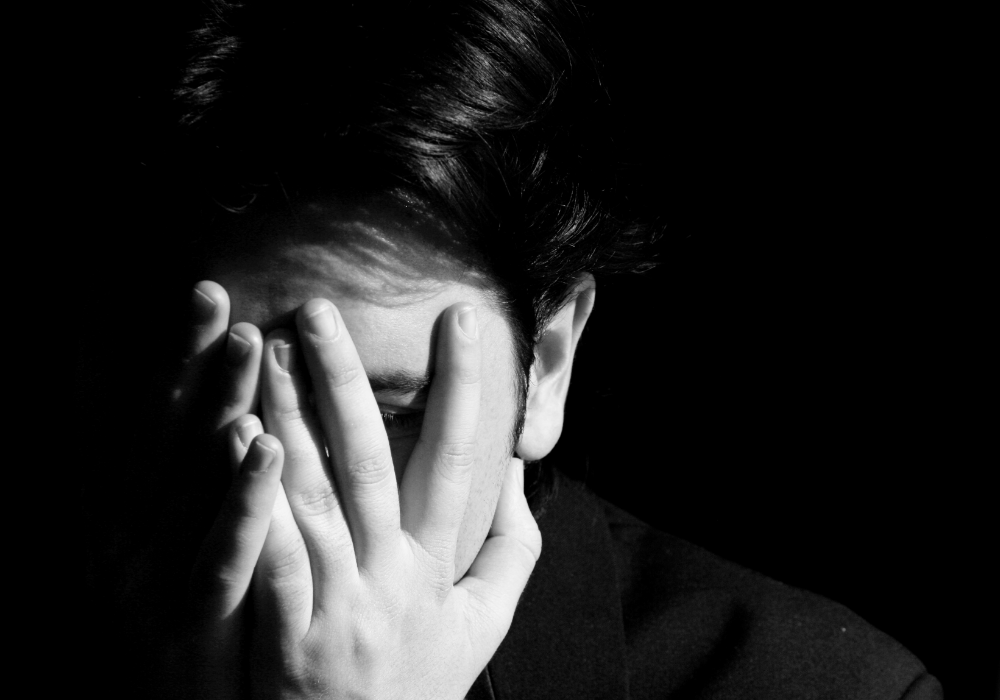Stillness can feel uncomfortable when your body is used to survival mode.

Periods of stillness can bring surprising discomfort. After long stretches of managing stress, pushing through tasks, or navigating social demands, a sudden pause might feel more unsettling than peaceful. Instead of relief, there’s restlessness. Instead of clarity, there’s a strange sense of absence. It can be easy to mistake this tension for boredom or aimlessness, but more often, it’s the nervous system adjusting to the absence of adrenaline. When urgency has been a constant companion, calm can feel unfamiliar—almost unsafe.
Many people interpret this unease as a sign they’re doing something wrong. They may fill the quiet with distractions, assuming their discomfort means they’re lazy or undisciplined. In reality, this reaction is common in the early stages of real rest. It takes time for the body and mind to relearn how to settle without a looming task. What feels like boredom is often recovery in progress, arriving awkwardly but with purpose.
1. A weekend with no plans brought a wave of sadness instead of relief.

After cancelling commitments and setting aside time for rest, a full weekend without obligations can feel like it should be restorative. But instead of calm, a kind of hollow sadness arrives. Activities that normally feel comforting—reading, cooking, watching a show—suddenly lack appeal. The empty space, though carefully created, feels uncomfortable, even bleak.
Experts at Cleveland Clinic explain that after prolonged stress, it’s common for people to experience emotional unease or even sadness during periods of rest as the nervous system begins to shift out of high alert. When there’s nothing urgent demanding attention, the internal noise gets louder. Feelings pushed aside during busy stretches may start to surface. It’s not that the rest was a mistake—it’s that the body needs time to catch up. What’s often labeled as boredom in these moments is actually the mind readjusting to a slower pace and learning to coexist with quieter emotions.
2. A nap left behind grogginess and confusion, not energy.

Resting in the middle of the day is often recommended as a form of self-care, but sometimes a nap brings more disorientation than refreshment. Jay Vera notes on the Sleep Foundation that waking up groggy is often a result of sleep inertia, which occurs when the brain is roused during deeper stages of sleep. The body doesn’t feel better—it feels off.
This can happen when rest interrupts a stress-driven rhythm the body hasn’t had time to unlearn. Fatigue that builds up over weeks or months doesn’t resolve in a single nap.
Instead, the brain may enter deeper stages of sleep too quickly or wake in the middle of a cycle, amplifying the feeling of disconnection. What looks like a failed attempt at relaxation is often a sign that deeper exhaustion is present. Rather than viewing the grogginess as a failure of rest, it can be seen as a signal that more consistent, sustained rest is still needed.
3. Meals without multitasking felt dull instead of nourishing.

Eating alone, without a screen or task to accompany it, can sound like the kind of mindful habit that cultivates calm. But once the plate is in front of you and the noise drops out, it can feel strangely flat. The meal blurs into the background, the silence feels dense, and a restless sort of dissatisfaction creeps in—not because of the food, but because of what isn’t there.
Angela Jacques and colleagues write in Neuroscience & Biobehavioral Reviews that overstimulated brains adapt to constant input, and the absence of that stimulation—such as eating without distractions—can feel uncomfortable during early stages of behavioral change. The meal hasn’t changed, but the nervous system hasn’t caught up to the new pace. Stillness doesn’t offer the same chemical high. Over time, that recalibration allows small pleasures to surface again—but at first, the quiet feels unnatural. The discomfort isn’t a failure of presence. It’s a nervous system learning how to land.
4. Saying no to plans created a strange sense of emptiness.

Turning down a gathering or skipping a social event can feel like progress—like protecting energy and making space for yourself. But when the night comes and the room is quiet, that space doesn’t always feel like comfort. It can feel vacant. Hours that were once filled with noise and interaction now stretch out, and the pause can trigger an unexpected wave of loneliness or aimlessness.
Instead of signaling regret, this feeling often marks a shift in identity. When busyness becomes a measure of belonging, stillness can feel like invisibility. It’s not that anything is wrong—it’s that the usual scaffolding of social validation has been removed. The body and mind are adjusting to solitude not as punishment, but as nourishment. That awkwardness is part of the transition. Stillness is expansive, but it takes time to recognize it as a gift when it’s been so closely associated with lack.
5. Pausing a strict routine made everything feel a little unmoored.

Routines can be grounding—morning workouts, meal prepping, or even regular journaling can bring structure and rhythm to daily life. So when one is paused, even intentionally, there can be a surprising sense of disorientation. The day doesn’t flow the same way. Tasks feel slower, energy dips, and even rest doesn’t register as restorative.
The shift is revealing. Beneath that routine may have been a fragile scaffolding that held more than just time management. It might have carried your self-worth, your sense of control, or your ability to regulate emotions.
When the habit is interrupted, it exposes those attachments. What seems like boredom is often the moment before integration—when your body and mind are learning to navigate without the guardrails. That slight drift is part of the process. With time, a slower pace can become its own kind of anchor. But at first, it feels like losing your footing on familiar ground.
6. A long bath or shower brought on unexpected anxiety.

The body may sink into warm water with relief, but the mind doesn’t always follow. For some, extended time in the bath or under the stream of a hot shower creates an uneasy stillness. Thoughts get louder. Muscles remain tight. That safe, gentle setting becomes oddly charged—less of an escape, more of a trap. Rather than signaling failure to relax, this discomfort often reveals how overstimulated the nervous system has become. In the quiet, there’s no external noise to drown out internal tension. The sensory shift draws awareness inward, and what surfaces might not be calm—it might be fear, sadness, or leftover stress.
These moments are often mislabeled as boredom or discomfort with stillness. But the real challenge is learning how to stay present with the discomfort long enough for it to shift. With practice, the water becomes grounding again—but not before it shows what the surface noise used to cover up.
7. Extended time off led to a sense of restlessness rather than restoration.

There’s a reason vacations don’t always feel restful. After the novelty fades, something else creeps in: an edge of irritability, an urge to “use the time well,” or even a subtle guilt. That stretch of open space that once felt luxurious begins to feel aimless. The longer the break, the harder it is to stay still. This isn’t a lack of gratitude—it’s a sign of how deeply internalized productivity has become. Time off removes the daily scaffolding of urgency, but it doesn’t erase the internal pressure to perform. Without tasks to define the day, it’s easy to feel untethered.
What’s often misread as boredom is actually withdrawal from a familiar adrenaline loop. Restoration isn’t just about time away—it’s about reprogramming the nervous system to stop craving momentum. That recalibration takes longer than a few days, and it rarely feels smooth. But this uneasy stillness is part of the repair, not a flaw in it.
8. Rest days triggered guilt instead of relief.

Even when a rest day is earned and intentional, it can feel oddly wrong. Not because the body doesn’t need it—but because the mind won’t let it land. The pressure to be productive lingers in the background, making leisure feel undeserved. Rest becomes something to sneak in or disguise as recovery, not something to inhabit fully.
What’s at play here isn’t laziness—it’s a value system shaped by burnout culture. When doing less feels like doing nothing, and doing nothing feels like failure, rest becomes emotionally charged. Guilt doesn’t mean the rest is a mistake; it means rest still feels foreign. That unease often comes before the benefits kick in.
With repetition, it gets easier to recognize stillness as a state worth protecting—not just because it replenishes energy, but because it begins to rewire how worth and output are linked. The guilt might not disappear immediately, but its presence means something is beginning to shift.
9. Quiet time brought up old emotional patterns.

Slower days often expose things faster ones keep hidden. When background noise disappears—whether from work, social plans, or screens—older thought patterns can creep in. Doubts about productivity. Irritation with stillness. A low hum of discomfort that seems out of place but lingers anyway. These reactions aren’t random. They’re often tied to habits built under stress, when constant motion felt necessary. When that pace drops, the familiar tension doesn’t vanish—it just has fewer places to go.
What’s uncomfortable isn’t the quiet itself, but what it reveals. This doesn’t mean rest is harmful or boring. It means rest allows mental clutter to surface, and that can take time to process. Recognizing old narratives doesn’t require fixing them immediately. Sometimes, naming them is enough to reduce their grip. That discomfort is part of the shift—not from doing to doing nothing, but from reacting to observing.
10. Being “caught up” felt more unsettling than satisfying.

Reaching the end of a task list or clearing the calendar can feel momentarily satisfying—but it’s not always the relief people expect. Instead of calm, there’s sometimes a sharp drop-off. The tension that powered each task doesn’t resolve; it just sits there. Without something immediate to solve or fix, it becomes harder to know what to do next.
That restlessness points to how heavily routines can rely on urgency. For those used to constant pressure, stillness feels like unfamiliar territory. It’s easy to assume the discomfort means something important is being missed. But often, it’s the absence of pressure that’s unfamiliar—not the presence of a problem.
There’s a difference between genuine boredom and a nervous system still adjusting to slower rhythms. The unease doesn’t mean you need to jump into another cycle. It just means you haven’t landed yet—and that process takes more than just time. It takes patience with your own pacing.
